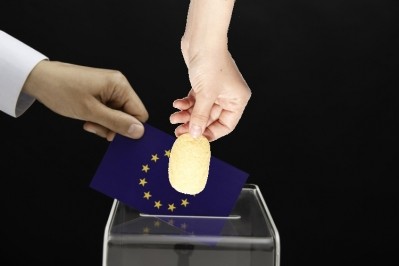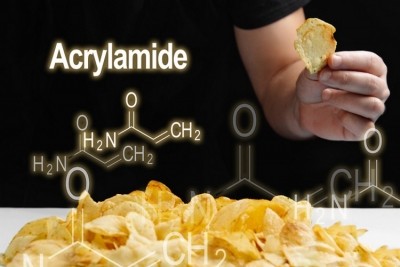‘We’ve crossed one mountain and now face a new one, but our future is green’: Director General, European Snacks Association
However, Sebastian Emig, director general of the European Snacks Association (ESA), is confident the future is green – not only in boosting both the health of people and the planet, but also in that there are still enormously exciting opportunities for the industry at every turn.
We caught up with Emig at Snackex, the association’s flagship trade show, fired up after a three-year hiatus, this year staged in Hamburg, Germany.
He told us the past few years have certainly been challenging, with problems ranging from supply chain issues to workers getting COVID, but essentially, the industry has “weathered the storm well.
I must say we did have the advantage with people mostly staying at home and consuming more of our] products,” he said.
“Now we’re facing new struggles, new issues with the war in Ukraine, supply chain issues, rising energy costs and inflationary pressures from our consumers. So, just as we’ve come across one mountain, a new mountain is in front of us. But I'm very confident we're going to come across this as well.”
In person, finally!
The choice of Hamburg for this year’s show – Snackex is held every two years in a different EU location – was to allow the Nordic and Eastern European countries easier access. In 2019, the show was staged in Barcelona, Spain, and Emig gave us a heads up for the next edition, which will be held in Stockholm, Sweden, in 2024.
“Hamburg was simply a very practical decision because we wanted to move from the south last time. The next one – in 2024 – is to go even further north.”
Reformulation, innovation, consumer information
The biggest topic in the snacks sector today is reformulation, said Emig.
“The pivotal trend is health related and manufacturers – along with the entire supply chain – have been working on that for the past couple of years,” said Emig.
“I think what we are going to see [in the future] is more products focused on free from … I’m pretty sure we’re going to see a bigger impact in protein-packed snacks – because people really want to have that feeling of satiety when they consume something and also due to the health factor. [So,] we will definitely see the impact of this on snacks, especially those based on pulses, wholegrains and lentils [for example].”
Emig noted that since our last video interview at Snackex in Barcelona, much has been achieved by the European Snacks Association (as a member of the site’s Editorial Advisory Board, he has often been quoted in articles, provided insight and participated in webinars).
Headquartered in Brussels, Belgium, ESA is the voice for over 200 member companies from 40 EU countries, comprising 80% of the European branded savoury snacks market, including mega corporations like Kellogg’s, PepsiCo, Intersnack and Kerry, among others.
Recent milestones and achievements included:
- ESA presented the latest progress on the mitigation of acrylamide achieved by the sector at the European Commission’s stakeholder forum on acrylamide and 3-MCPD.
- Publication of ESA’s latest peer reviewed paper on reducing acrylamide.
- Publication of a comprehensive paper on product innovation and reformulation.
- ESA signs up to the EU Code of Conduct for Responsible Food Business and Marketing Practices.
- ESA updated its position on nutrient profiles in context of the ongoing review of the Food Information to Consumers Regulation.
- ESA was among those to sign a joint statement to end the EU/US dispute over steel and aluminium tariffs.
- ESA co-signed a position paper on flexible packaging recyclability.
One of the highlights, added Emig, was being fully focussed on the Farm to Fork Strategy – which is part of the Green Deal – and pivotal in building a sustainable food system.
“We’re working together with our members to collect all the evidence and best practice cases and success stories from our sector to show policymakers (and also non-governmental organisations) what we’re doing in order to help consumers make the healthier choice, as I said, reformation, innovation, consumer information – so, all of what are doing and what we’ve done in the past to help make the sustainable lifestyle the preferred choice when it comes to diet, nutrition and lifestyle in general.”
The crippling sunflower oil shortage
In light of the sunflower oil shortage due to the conflict in Ukraine, ESA is also working with FoodDrinkEurope to lobby the European Commission to adopt a harmonised approach for the labelling of snack products containing ingredient that need to be replaced owing to supply chain disruptions.
“Obviously, we are not the only sector affected, but we are trying to find solutions on the practical side – and also on the legislative side – to try to create as much room for manoeuvre for our members … in order to, if necessary, use other raw materials, which will then obviously change nutritional properties, which will affect information on pack…
“So, we are on that and are very happy for the feedback from our members in order to get a level playing field among all the markets within Europe, to help the industry.”
Emig tackles these and many more issues facing the sector in our video interview.









